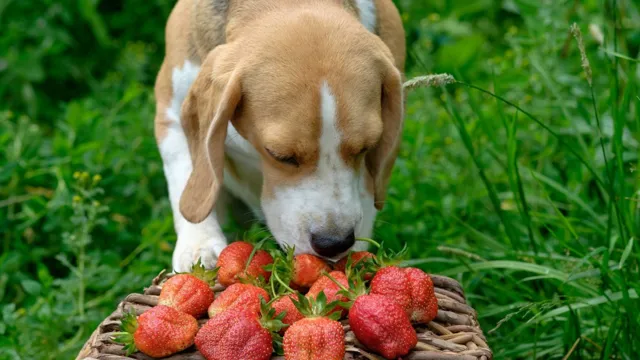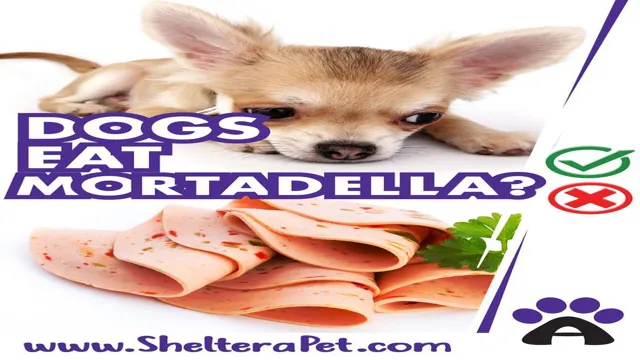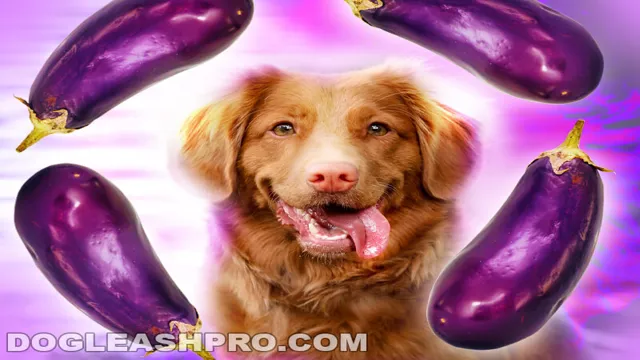Can Dogs Safely Consume Onion and Garlic? A Guide for Pet Parents

Dogs and onions and garlic – two things that don’t seem to go together, but is it safe for your pup to eat them? Onions and garlic can be dangerous for dogs, and it’s important to understand the risks before letting your furry friend indulge. In this blog, we’ll explore whether dogs can eat onion and garlic, the benefits and dangers of feeding them to your pup, and helpful tips for keeping your pup safe. So, read on to find out if your pup can safely enjoy the flavor of onions and garlic!
Risks of Onion & Garlic for Dogs
Onions and garlic are staples in many kitchens all over the world, but did you know that they can be harmful to your pup? While these flavorful alliums may add a delicious kick to your favorite dishes, they can cause serious illness in dogs. It’s important to know the risks of onion and garlic for dogs so that you can keep your furry friend safe. Onions and garlic, whether cooked or raw, contain compounds known as thiosulfates, which can cause anemia in dogs. Anemia is a condition in which there is a decrease in the number of red blood cells, preventing adequate oxygen from reaching the body’s organs. Signs of anemia in dogs include lethargy, pale gums, rapid heart rate, and dark urine.
If left untreated, anemia can be fatal. In addition to anemia, onions and garlic can also cause digestive upset in dogs. These alliums can lead to vomiting, diarrhea, and other gastrointestinal distress in your pup. If your dog has eaten onions or garlic, watch for any changes in their behavior, such as decreased appetite, or any signs of discomfort, such as abdominal pain. It’s important to note that even small amounts of onion or garlic can be dangerous for dogs.
While some pet owners may think that a bite of an onion or garlic-infused dish won’t hurt, it’s best to avoid feeding these foods to your pup altogether. If your pup has ingested onion or garlic, it’s important to seek veterinary care immediately. Your vet may recommend inducing vomiting to remove the toxins from your pup’s system. In serious cases, your vet may administer IV fluids or a blood transfusion to help your pup recover. It’s important for pet owners to understand the risks of onion and garlic for dogs.
While these flavorful alliums may be delicious to us
Toxicity
It is a common misconception that all human foods are safe for dogs to consume, but this surely isn’t the case. Onions and garlic, while delicious additions to many meals, should not be a part of your pet’s regular diet. The compounds found in these foods have been found to be toxic to some animals, including dogs. Eating either of these can lead to anemia, digestive problems, and even death. To keep your pup safe, it is best to avoid giving them any onion or garlic, no matter how much they beg for it.
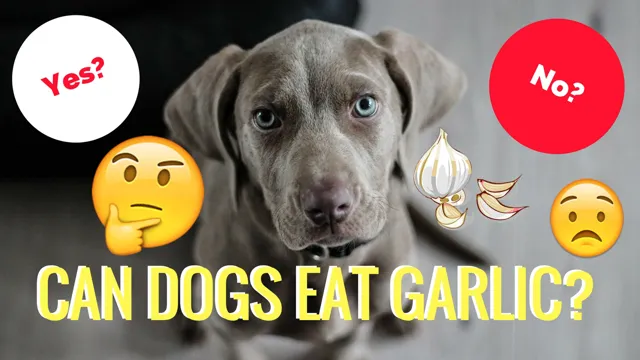
Digestive Issues
Digestive issues can be a common concern for pet owners, especially when it comes to what food is safe to give their dogs. One of the most common questions that arise is: can dogs eat onion and garlic? The answer is a resounding no! While these ingredients may add flavor to our foods, they can be incredibly dangerous to our furry friends. Onion and garlic can cause digestive issues, anemia, and even organ damage in dogs. It’s best to keep these ingredients out of your pup’s diet and find healthier alternatives to season their meals.
Alternatives to Onion & Garlic
Onion and garlic are popular ingredients in many dishes, but can dogs eat onion and garlic? Unfortunately, the answer is no. Onions and garlic can be toxic to dogs and can cause anemia or other serious health issues.
Onions and garlic contain compounds called thiosulfates, which can be harmful to dogs if ingested in large amounts. When broken down in the body, thiosulfates can cause hemolytic anemia, a condition in which red blood cells are destroyed. This can lead to a decrease in oxygen-carrying capacity, resulting in lethargy, pale gums, and even death.Fortunately, there are several alternatives to onion and garlic that are safe for dogs to consume. Carrots are a great substitute for both onions and garlic. They are packed with vitamins and minerals and are a great source of dietary fiber. Carrots also contain antioxidants, which can help support overall health. Mushrooms are also a great substitute for onion and garlic.
They have a mild, earthy flavor and are a great source of protein, fiber, and essential vitamins and minerals. Plus, they are low in calories and fat, making them an ideal addition to your pup’s diet. Other alternatives to onion and garlic include celery, bell peppers, and leeks. Celery is a great source of dietary fiber and contains vitamins A, C, and K. Bell peppers are loaded with antioxidants and are rich in vitamins A, C, and E.
Finally, leeks are rich in dietary fiber, vitamins A and C, and iron. While these vegetables may not provide the same flavor and aroma as onion and garlic, they are safe for dogs to eat and can be used to enhance the flavor of any dish. So, if you’re looking for a safe and healthy alternative to onion and garlic, these vegetables are definitely worth considering.
Fruits & Veggies
We all know that fruits and veggies are essential for a healthy diet, but can dogs eat onion and garlic? While these two foods have some nutritional benefits, they can also be toxic to dogs in large quantities and can cause digestive issues. Onions contain a compound called thiosulfate, which can cause anemia in dogs, while garlic contains a compound called allicin, which can cause stomach upset and diarrhea. So while it may be tempting to sneak your pup a taste of your garlic bread, it is best to keep these ingredients out of reach from your pup.
Herbs & Spices
Herbs and spices are a great way to add flavor to any dish, but when it comes to our beloved canine companions, some ingredients may be more harmful than helpful. While onions and garlic are tasty additions to human food, they should be avoided when cooking for your pup. Onion and garlic contain compounds that can damage a dog’s red blood cells, leading to anemia, or a lack of oxygen in their blood. While a small amount may not be a major issue, it’s best to keep these ingredients away from your pup. Instead, try adding some fresh herbs like parsley or oregano to enhance the flavor of your pup’s meals!
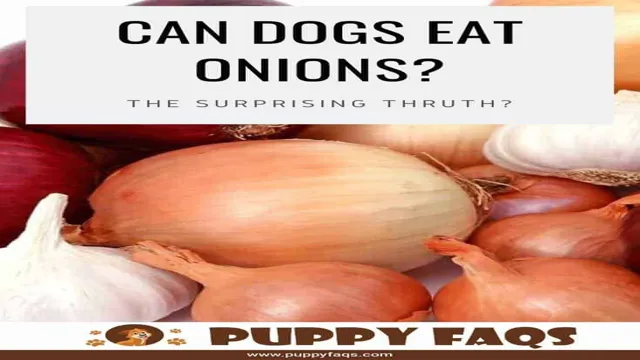
Conclusion
No, dogs should not eat onion or garlic. While these foods may add flavor to a dish, they can be toxic to dogs in large amounts and can cause stomach upset. In short, when it comes to onion and garlic, it’s best to keep it away from Fido!”
FAQs
Can dogs eat onion?
No, dogs should not eat onion as it can be toxic to them.
Can dogs eat garlic?
Garlic can be toxic to dogs in large amounts, so it is best to avoid feeding it to them.
What are the dangers of onion and garlic for dogs?
Onion and garlic can cause gastrointestinal distress, anemia, and other health problems in dogs.
What should I feed my dog instead of onion and garlic?
Fruits and vegetables such as carrots, apples, broccoli, and sweet potatoes are generally safe for dogs to eat.
Are there any other foods that can be dangerous to dogs?
Grapes, raisins, chocolate, and macadamia nuts are some other foods that can be toxic for dogs.
